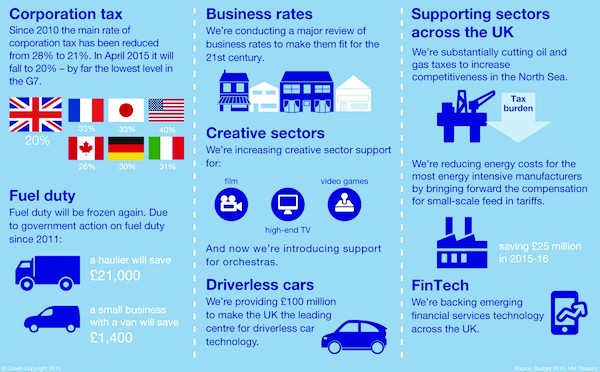More in
Osborne unveils packages for science, industry and regions in Budget
Britain’s hard-pressed oil and gas industry received a boost in Parliament today when George Osborne announced £1.3bn worth of measures to support the industry.

Delivering his last budget speech before the general election, the chancellor also pledged new investments and financial incentives for manufacturing, science and the so-called Northern Powerhouse.
Osborne reminded parliament of field allowances that have led to £15bn of capital investment in North Sea fields last year, and the Office of Budget Responsibility estimate that today’s measures will boost North Sea oil production by 15 per cent by the end of the decade.

Osborne said: “The fall in the oil price poses a pressing danger to the future of our North Sea industry – unless we take bold and immediate action.
“First, I am introducing from the start of next month a single, simple and generous tax allowance to stimulate investment at all stages of the industry.
“Second, the government will invest in new seismic surveys in under-explored areas of the UK Continental Shelf.
Register now to continue reading
Thanks for visiting The Engineer. You’ve now reached your monthly limit of news stories. Register for free to unlock unlimited access to all of our news coverage, as well as premium content including opinion, in-depth features and special reports.
Benefits of registering
-
In-depth insights and coverage of key emerging trends
-
Unrestricted access to special reports throughout the year
-
Daily technology news delivered straight to your inbox










Water Sector Talent Exodus Could Cripple The Sector
Maybe if things are essential for the running of a country and we want to pay a fair price we should be running these utilities on a not for profit...